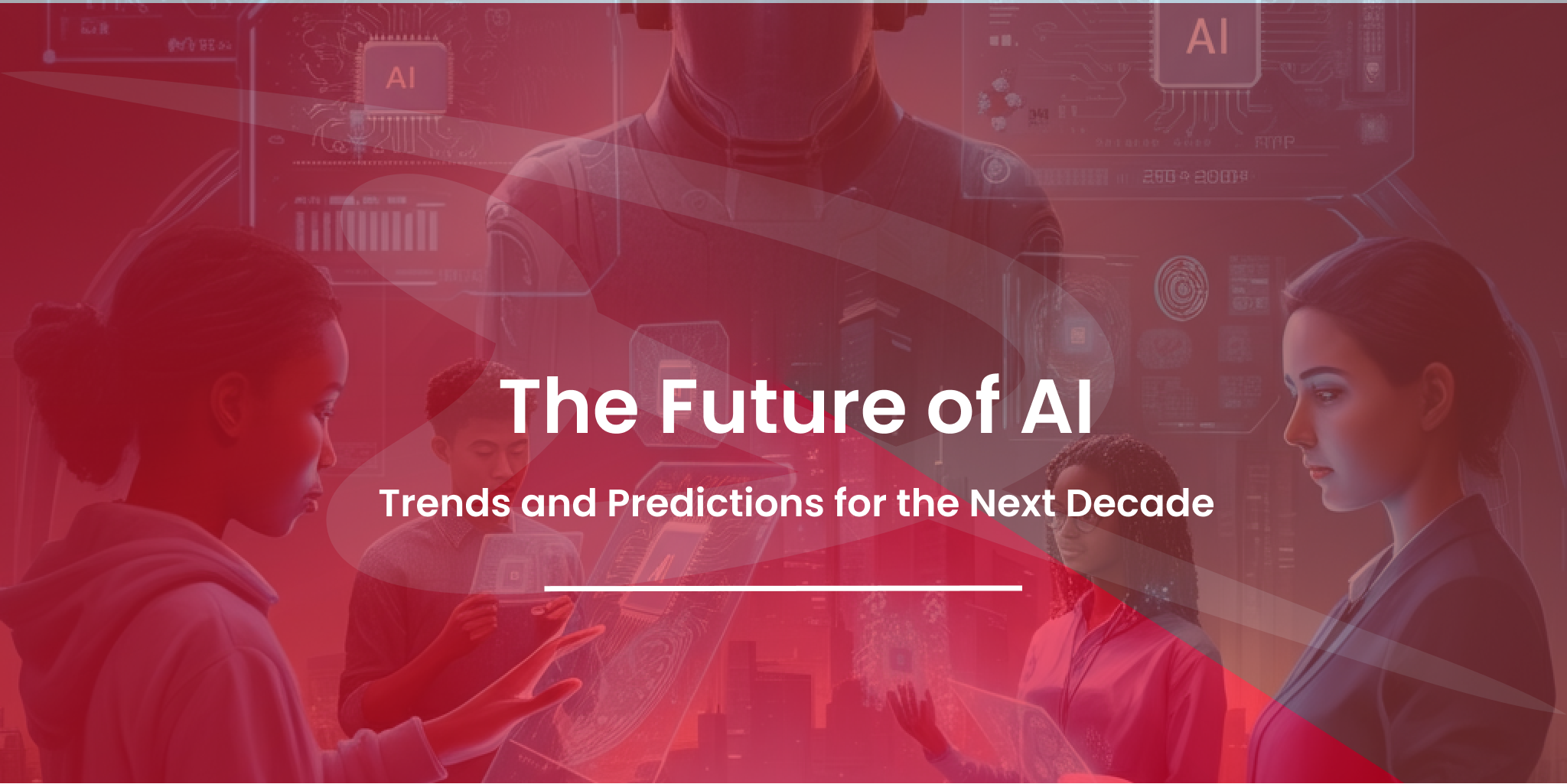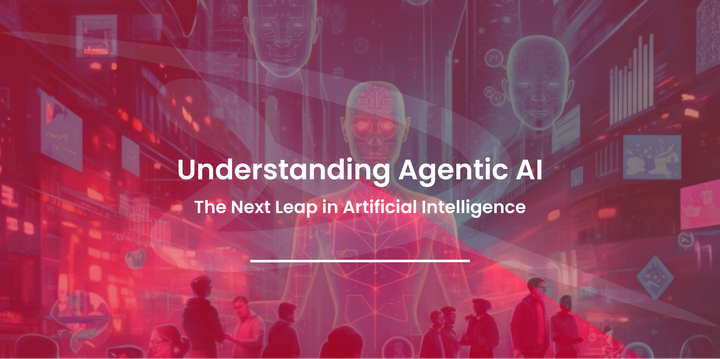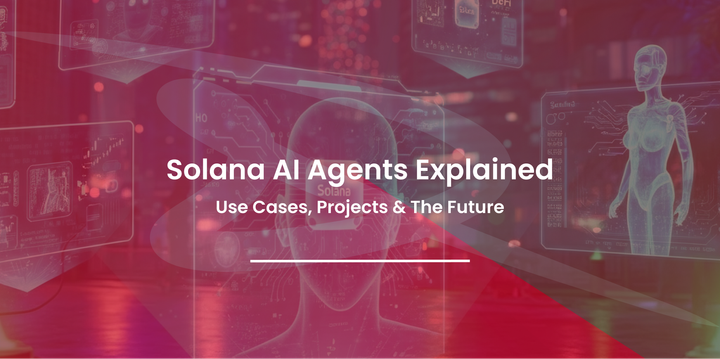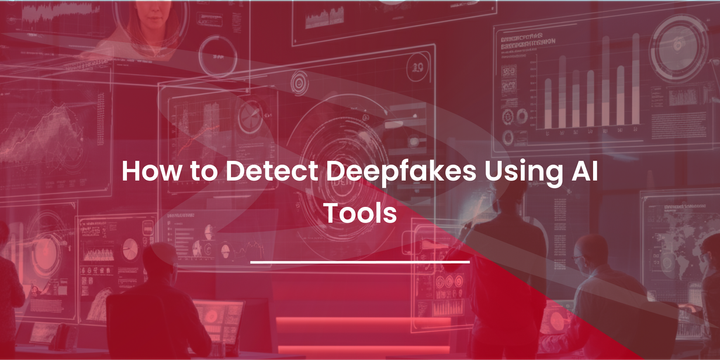The Future of AI: Trends and Predictions for the Next Decade
Explore upcoming AI trends, from generative content to ethical AI, and learn how Artificial Intelligence will impact businesses, work, and society.

Artificial Intelligence (AI) is no longer confined to sci-fi stories or highly experimental labs. From chatbots that help us book vacations to algorithms predicting stock trends, AI has seamlessly integrated into our daily lives. But where does it go from here? What new transformations and challenges await in the next decade? Whether you're an AI enthusiast, developer, or curious student, this guide dives deep into the trends and predictions shaping the future of AI.
Current State of Artificial Intelligence
A Brief History of AI Innovation
AI has come a long way since Alan Turing asked the famous question, "Can machines think?" in the 1950s. Fast forward through decades of innovation, and today, we have AI marvels like OpenAI's ChatGPT, Google's DeepMind, and countless predictive engines driving industries.
The field is flourishing—self-driving cars are being tested, language models are generating books, and AI-powered tools are revolutionizing healthcare and customer service. Yet, challenges like bias in algorithms, transparency issues, and ethical concerns show that the technology is far from perfect.
Where We Are Today
AI is now a critical tool in industries like:
- Healthcare (AI aids in analyzing patient data for better diagnostics)
- Retail (predictive analytics to optimize inventory and enhance customer experience)
- Finance (AI algorithms monitor fraudulent activity and help manage investments)
- Marketing (content generation, targeted campaigns, and chatbots engaging users in real time)
We’ve seen major strides, but solving some challenges, like generating natural language or achieving fully autonomous systems, remains a work in progress.
Emerging Trends in Artificial Intelligence
AI’s evolution brings exciting new trends to the table, and these upcoming changes indicate a more integrated, ethical, and advanced future.
1. Generative AI and Creative Automation
Imagine businesses and creators relying on AI to generate original content—articles, art, music, and entire scripts. Generative tools like OpenAI's DALL-E and Jasper AI are leading this space.
- Applications in Practice:
- Marketing: Automating ad copy and social media content for businesses.
- Entertainment: AI-designed video game environments or film concepts.
- Graphic Design: Tools like Canva integrating AI suggestions to create personalized visuals.
2. AI in Healthcare and Biotechnology
AI isn’t just helping doctors; it’s revolutionizing how we approach medicine and treatment.
- Predictive Diagnostics:
AI can detect diseases at early stages. For example, Google's AI model is trained to identify diabetic retinopathy with higher accuracy than human doctors.
- Drug Discovery:
Algorithms like those by DeepMind are proving instrumental in accelerating the development of new drugs by simulating protein structures.
- Personalized Medicine:
Imagine medicine prescribed not solely on symptoms but on your unique genetic makeup. AI will drive this personalization.
3. Natural Language Processing (NLP) & Conversational AI
Communicating with machines has never been easier or more intuitive.
- Advancements:
NLP capabilities are leading to chatbots that feel more conversational, whether they're helping a customer solve an issue or assisting you in organizing your calendar.
- Applications:
Sentiment analysis for businesses, real-time language translation (great for international growth), and personalized online learning tutors.
4. Edge AI and IoT Integration
Big players like Tesla and Siemens are pioneering what AI can achieve when paired with Internet of Things (IoT) devices.
- Using Edge AI (AI processed locally on devices instead of cloud servers), we’re seeing:
- Smart homes that adjust environments in real time.
- Autonomous vehicles processing vast amounts of data in milliseconds.
- Safer, data-secure IoT systems for industries like manufacturing and urban planning.
5. Ethical AI and Responsible Development
The "black box" problem—where AI decision-making processes aren’t transparent—is ushering in a shift toward more ethical and explainable AI.
Efforts to reduce biases, ensure fairness, and prioritize data privacy are shaping the field. Expect stricter regulations on AI systems developed for sectors like healthcare and defense.
Predictions for the Next Decade
AI and the Future of Work
AI poses both challenges and opportunities in the workforce:
- Automation will replace repetitive manual tasks.
- New Professions like "AI trainers" (humans fine-tuning AI systems) will emerge.
- Companies will value skills like creativity, emotional intelligence, and cross-industry knowledge more than ever.
AI’s Role in Sustainability
AI will push sustainability initiatives globally:
- Optimizing renewable energy use in households.
- Developing advanced recycling programs.
- Monitoring environmental changes like deforestation or marine pollution.
Human-AI Collaboration
Rather than fearing job loss, we should think of AI as a collaborator. Creative professionals will rely increasingly on AI-powered assistants for brainstorming, analytics, and insights.
"A well-organized AI system can enhance human creativity rather than replace it," says Dr. Anil Saxena, an AI researcher at MIT.
Quantum Computing Meets AI
AI’s capabilities will explode when quantum computing becomes more mainstream. Quantum processors hold the potential to handle data sets and problems at speeds unimaginable today.
Challenges and Concerns for Future AI Development
Ethical and Privacy Issues
How much personal data are you willing to share with an AI to get better recommendations? The trade-off between data utility and privacy will be a hot-button issue.
Regulation and Policy
Frameworks must balance freedom to innovate with safeguards ensuring responsible AI use. Governments face a tall order navigating the impact of technologies advancing faster than legislation.
Social and Economic Impact
Job displacement caused by automation is one of the biggest concerns AI critics voice. We’ll need systems to upskill workers and distribute AI’s benefits evenly across global populations.
The Role of Artificial Intelligence in Shaping Society
Beyond industry applications, AI will redefine how we:
- Learn:
AI tutors providing 1-on-1 personalized attention in digital classrooms.
- Communicate:
Real-time language translation enabling seamless global conversations.
- Solve Global Challenges:
Tackling issues like climate change or global food insecurity through innovative AI research projects.
FAQs on the Future of AI
Q1: What are the top AI trends to watch in the next decade?
A: Generative AI, conversational assistants, ethical AI, and edge computing lead the way.
Q2: Will AI replace jobs?
A: It will automate repetitive tasks, but it will also create jobs focusing on creativity, empathy, and complex problem-solving.
Q3: How can businesses prepare for AI?
A: By integrating AI tools now for data analysis, customer engagement, and workflow automation.
Shaping Tomorrow with AI
Artificial Intelligence is not just a technological leap—it’s a tool that will shape humanity’s future. By addressing ethical concerns, ensuring accessibility, and fostering collaboration, AI holds the potential to elevate us all




Comments ()